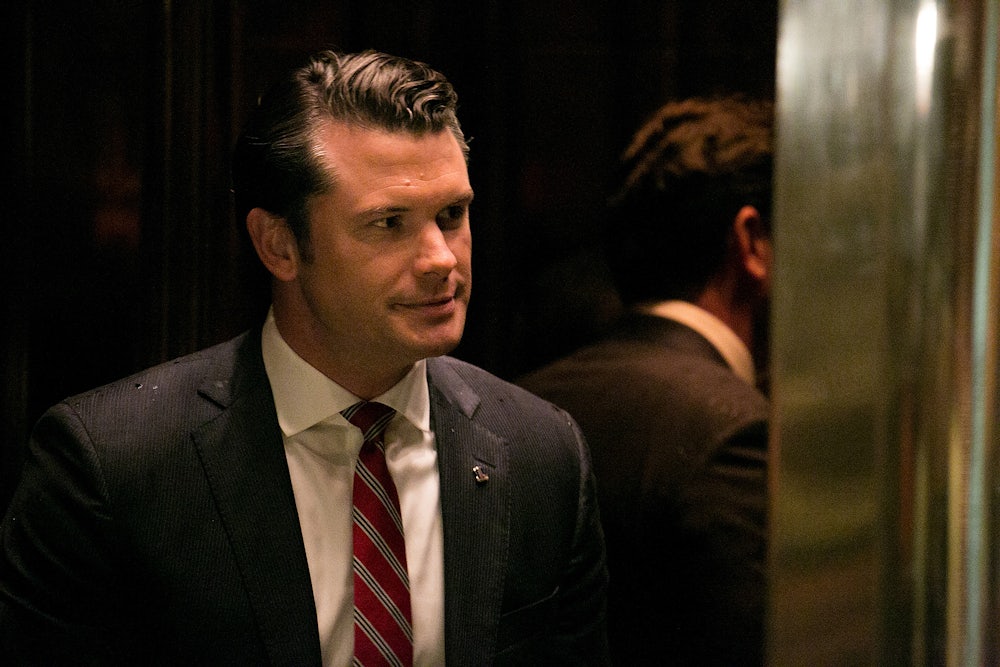In the immediate aftermath of the January drone strike that killed Iranian commander Qassem Soleimani, the person who explained President Donald Trump’s military strategy to the public was not Stephanie Grisham, the White House press secretary who has never held a press briefing; nor was it any other member of Trump’s communications team. It was Pete Hegseth, a Fox & Friends Weekend host who has become not only one of Trump’s most slavish cheerleaders but also an influential adviser to the president.
Hegseth is an alum of Princeton, Bear Stearns, and Guantánamo Bay, where his National Guard unit was briefly posted in the 2000s. He first made a name for himself as head of the conservative nonprofit Vets for Freedom, which advocated for increasing troop deployments to the Middle East. After a failed Senate bid in 2012 (he lost the Republican primary to a Tea Party candidate), he took the reins at Concerned Veterans for America, an AstroTurf group awash in Koch money.
Until recently, his career as a supporting character on Fox was undistinguished, perhaps with the exception of an unfortunate incident in which he accidentally threw an ax at a member of the West Point marching band while filming a segment. But Trump’s election pushed him into the limelight: By last spring, the president had already burned through his traditional foreign policy advisers (Tillerson, McMaster, Mattis) and alienated his more bellicose ones (Bannon, Bolton); the remaining staff on the National Security Council were demoralized, their ranks thinned in successive purges.
Hegseth had no official position in the administration—he was once rumored to be a potential Veterans Affairs secretary, but veterans groups objected, and the post ultimately went to Robert Wilkie—but even from his perch in New York, he was able to exert influence on Trump’s military decisions. Hegseth successfully urged the president to intervene on behalf of Edward Gallagher, the Navy SEAL accused of stabbing a sedated teenage prisoner to death. Then, in November, Hegseth usurped the Pentagon’s top brass when he reportedly convinced Trump to pardon Mathew Golsteyn, who ambushed an unarmed man suspected of being in the Taliban, and Clint Lorance, who ordered his soldiers to fire on unarmed Afghan civilians.
By January, it was almost as though Hegseth was drawing up the administration’s battle plans live on air. After the Soleimani strike, he called the attack “as big as bin Laden.” Like a teenager hopped up on Red Bull, he declared himself “fired up” and speculated that Trump’s next target could be a “second general,” or “how about their oil and gas?” When the president took to Twitter to suggest bombing Iran’s cultural heritage, Hegseth again proved himself uniquely willing to defend American war crimes: “I don’t care about Iranian cultural sites,” he boasted. If Trump ever does end up ordering another strike on Iran, it’s a safe bet that those words will be ringing in his head when he pushes the big red button.
